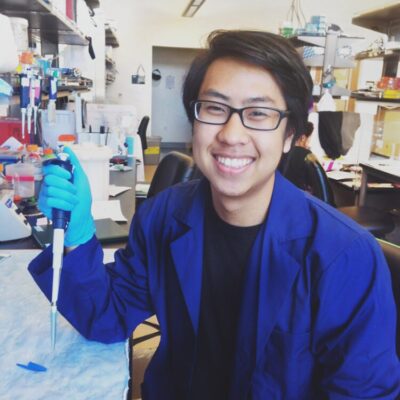Gregory Chin Rose Hills
Albumin-Induced Reactive Astrocytosis Following Blood-Brain Barrier Disruption: A Model for Age- Related Seizure Susceptibility
Post-traumatic epilepsy (PTE), occurring after brain insult, is one of the most common epilepsies, affecting millions of people worldwide. The progression of PTE is marked by a period of neuronal network reorganization in which post-injury inflammatory responses are thought to contribute to a hyperexcitable neural environment, ultimately leading to chronic and spontaneous seizures. Previous research found that the breakdown of the blood-brain barrier (BBB) during injury allows the serum protein albumin from the blood to enter the brain. Serum protein albumin binds selectively to transforming growth factor beta receptors (TGF-R) on astroglia, causing inflammatory TGF- signaling and initiating a variety of effects including reactive astrocytosis, increased neuronal excitability and epileptogenesis. Over the summer, I will be investigating the identity of potentially epileptogenic astrocytes, along with probing their possible roles in causing susceptibility to seizure onset, which could elucidate the cellular and molecular factors underlying epileptogenesis.
Message To Sponsor
I am grateful beyond words that the SURF Program and the Rose Hills Foundation have granted me this opportunity to become fully immersed in academic research over the summer. By the end of the summer, I will have collected an immeasurable amount of knowledge and experience in neurobiology that could not have been gained through a summer class. This will definitely be an experience that will shape my perception of how scientific research impacts society. I hope to have a breadth of expertise and experience that will aid me well as I move towards my future goals in medicine and science. Thank you!